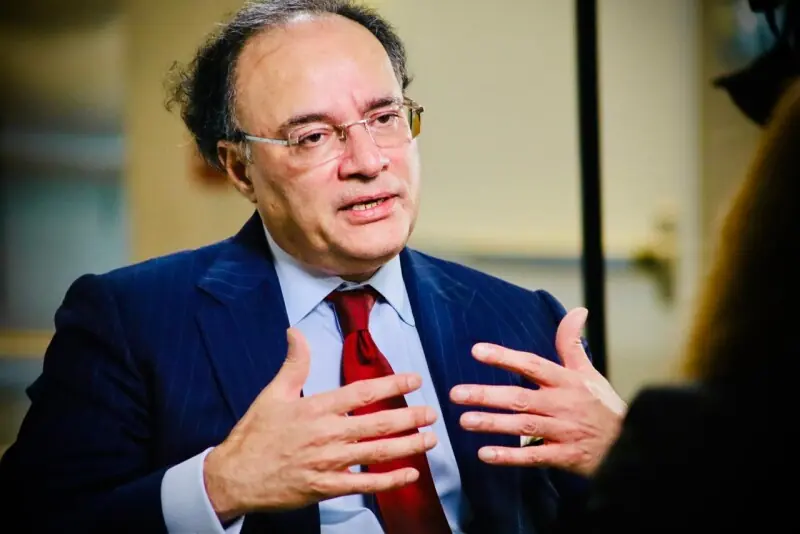Pakistan is entering a pivotal phase of economic transformation driven by structural reforms and an export-led growth strategy, Finance Minister Muhammad Aurangzeb said in an interview with CNBC on the sidelines of the World Bank Group–IMF Annual Meetings in Washington DC.
Aurangzeb, currently in Washington DC to attend the 2025 World Bank Group – IMF Annual Meetings, held an interview with the US media outlet to discuss Pakistan’s ongoing International Monetary Fund (IMF) engagement and the country’s emerging export-led growth strategy.
During the interview, the finance minister underlined the steady progress Pakistan has made toward macroeconomic stability over the past year, emphasizing improvements across key indicators including currency stability, foreign exchange reserves, inflation, and policy rate alignment. He noted that the recent upgrades by all three major global rating agencies validate the country’s economic trajectory and reform agenda.
Pakistan reaffirms reform commitment in meeting with IMF deputy chief
Aurangzeb stated that Pakistan’s current reform drive is rooted in a balanced approach that links macroeconomic stability with deep structural transformation.
“Macroeconomic stability and structural reforms must go hand in hand,” he said, citing ongoing efforts in taxation, energy, state-owned enterprise restructuring, and public finance as integral to this agenda.
Discussing the next phase of Pakistan’s growth journey, the finance minister said the government is determined to break away from the historical cycle of boom-and-bust by shifting from an import-led to an export-led growth model.
He highlighted the introduction of an ambitious tariff rationalization regime aimed at enhancing industrial competitiveness, reducing costs of raw materials and intermediate goods, and supporting the export sector.
Explaining Pakistan’s policy stance in the context of global trade dynamics, Aurangzeb stated: “While every country follows its own policy imperatives, Pakistan’s focus is on fostering competitiveness rather than protectionism. We cannot continue to shield industries indefinitely – our priority is to enable industries to compete, grow, and export.”
He acknowledged the strong partnership with the United States and commended the World Bank Group for supporting Pakistan’s reform efforts.
Drawing a broader perspective, the finance minister remarked that Pakistan’s reform momentum and economic liberalization could set the stage for an “East Asia moment” – a period of dynamic, export-driven expansion inspired by the experience of high-growth Asian economies such as Singapore.
Aurangzeb concluded by reaffirming Pakistan’s commitment to sustaining reform implementation, strengthening resilience, and positioning the country on a sustainable, outward-looking growth path.


